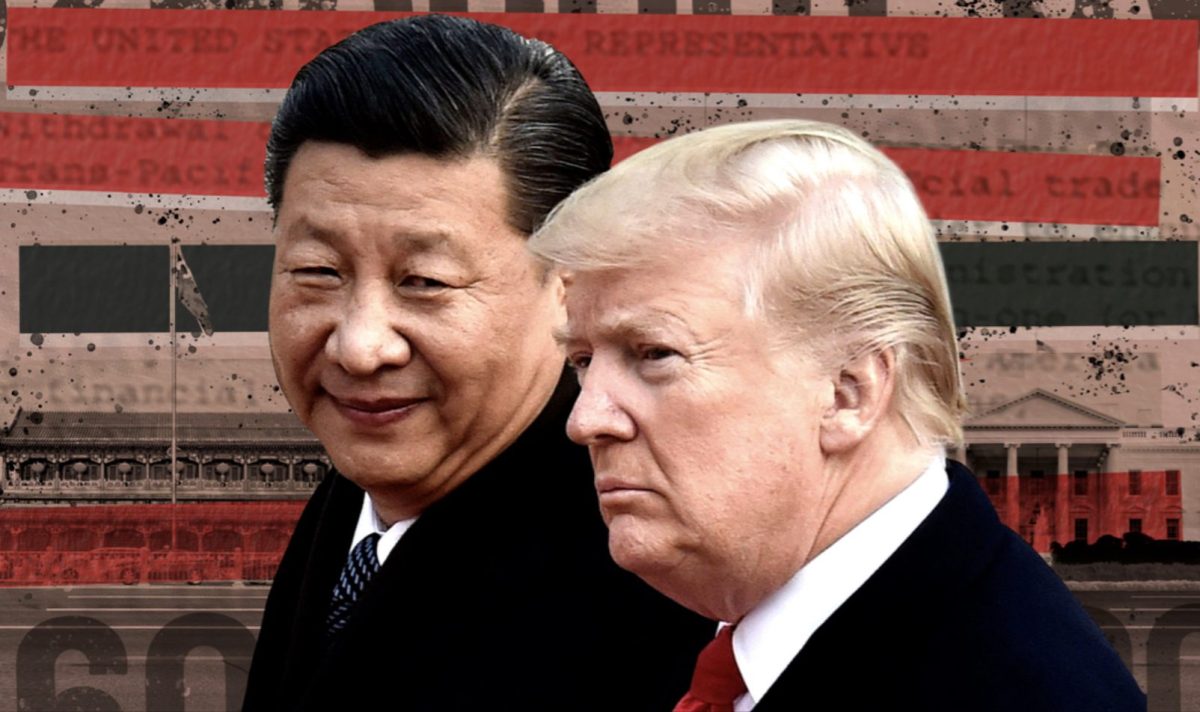As rumors swirl about President Donald Trump possibly attending China’s “Victory Day” parade this September, it’s worth sounding an alarm. Such a visit to Beijing would be a strategic blunder that undermines Washington’s Indo-Pacific posture, undercuts American allies and sends a troubling message to the wider world.
On its face, this kind of diplomatic invitation may be tempting at this delicate juncture in bilateral relations. Trump has long shown an affinity for grand displays of military prowess, high-stakes diplomacy and face-to-face theatrics.
A handshake with Chinese leader Xi Jinping in front of goose-stepping soldiers might make for dramatic television. If Beijing officials dangle the promise of a new trade agreement, it might even be a transactional win. But the costs would far outweigh the optics.
First, there is the history and symbolism of Victory Day itself. China’s September 3 commemoration is not merely a celebration of the end of World War II. It’s a well-worn anti-Japanese ritual.
While framed as a tribute to China’s role in defeating fascism, the parade often serves as a thinly veiled nationalist spectacle aimed at disparaging modern Japan and legitimizing the Communist Party’s historical narrative.
This is not to suggest that Japan’s actions during World War II were innocent or justified — far from it. But China’s Victory Day parade is more about nationalist messaging and historical revisionism than sober remembrance, and ultimately aims to serve Beijing’s current strategic goals.
The irony is that most of the conventional resistance to Japan came not from Mao Zedong’s Communist forces, but from Chiang Kai-shek’s Nationalist army — the same Nationalists who later fled to Taiwan. By standing alongside Xi and possibly even Russian President Vladimir Putin, Trump would risk endorsing this misleading version of history.
That, in turn, would alienate two of America’s strategic partners in East Asia, namely Japan and Taiwan. Taiwan, in particular, would have reason to feel betrayed. Its very identity is rooted in the struggle against the same Chinese Communist Party that now seeks to erase its role, and seemingly its existence, from the annals of history.
South Korea, too, would draw the wrong conclusions. Lee Jae-myung, the left-leaning president, has reportedly decided not to attend the same ceremony as a quiet signal of the importance of maintaining his country’s alignment with Washington.
Trump’s presence could undercut this calculation, emboldening voices within Seoul that favor a tilt toward Beijing. It would surely sow confusion among American allies in East Asia at a time when Washington is demanding their deeper support for its Indo-Pacific strategy to counter China.
There is also precedent to consider. In 2015, then-President Park Geun-hye of South Korea attended the same parade as the only US ally to do so. While she sought to strike a delicate diplomatic balance, the visit spectacularly backfired.
Her decision raised significant eyebrows in Washington and Tokyo, and the political backlash at home was even greater. To this day, her appearance standing between Putin and Xi atop Tiananmen Tower is remembered not as a diplomatic gambit but as a major miscalculation.
The stakes in 2025 are even higher. The world is witnessing the most dangerous moment for the global order since the end of the Cold War. China is waging an economic war against the West and flirting with military adventurism in the Taiwan Strait.
Russia, meanwhile, remains entrenched in a war of aggression in Ukraine. For Trump to attend a parade that implicitly legitimizes both of these regimes would hand Beijing and Moscow a propaganda victory.
Even more troubling is the message it would send about America’s military posture in the Indo-Pacific. Chinese military parades prominently feature missiles and weapons systems explicitly designed to threaten US bases, forces and partners, including in Guam, Japan and Taiwan.
Trump’s attendance at the celebration could be interpreted as tacit approval of Beijing’s growing ambitions and invite serious doubt about Washington’s security resolve.
There is also the potential domestic political cost. Trump built his election campaign on confronting China, restoring American strength, and putting “America First.”
Attending a parade that glorifies communist China’s military might would hand his critics a damning visual contradiction. To national security conservatives and China hawks, it could look like a compromise of the very principles Trump claims to represent and defend.
It would likewise undercut the recent efforts of Republican foreign policy voices such as Elbridge Colby and Brian Mast, who have been urging America’s East Asian allies to take on a more assertive role in Washington’s broader efforts to counterbalance China. Trump would thus be well advised to stay home on September 3.
Kenji Yoshida is a Seoul-based correspondent for JAPAN Forward

